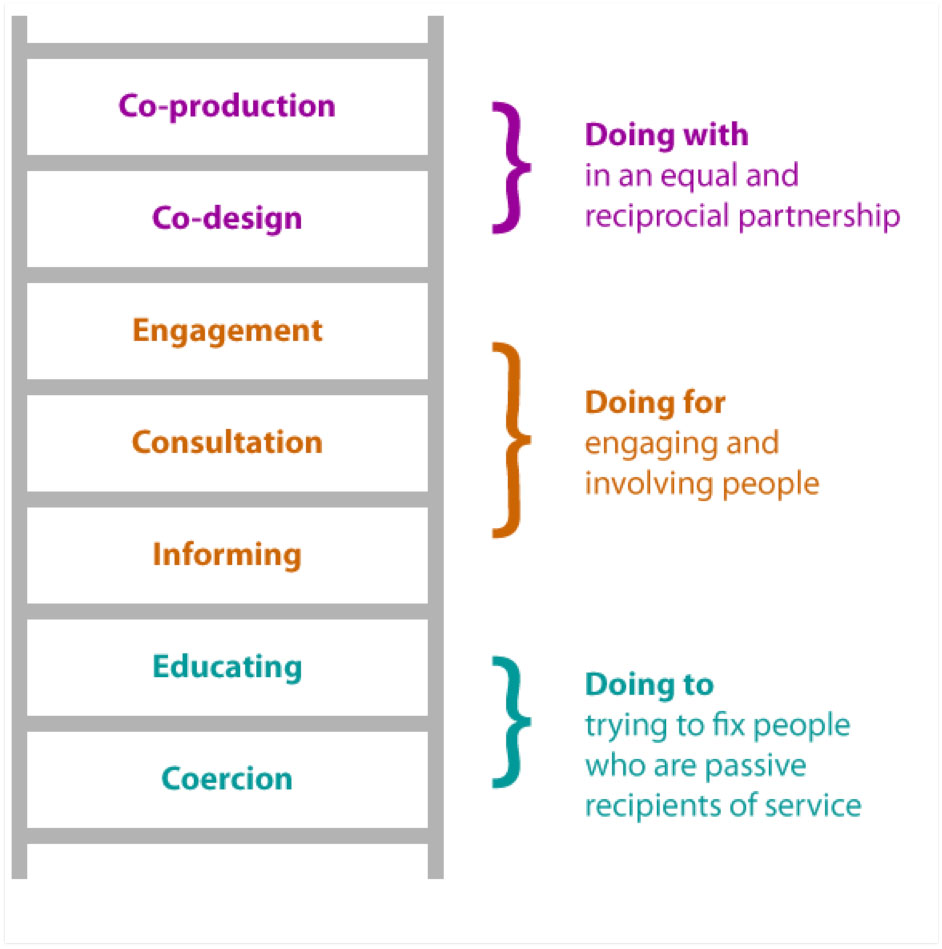What do we mean by co-production?
Most new health and social care legislation and research calls refer to the need to involve people who use services. Co-production is an approach to services or research which involves professionals and people with lived experience, service users, carers and the community that they live in working in authentic partnership from the outset through to dissemination of any project (Sealey, Fillingham and Unwin, 2021).

Such a process is intrinsic to Peter’s research approach (e.g., Unwin, Meakin and Jones, 2020; Unwin et al. 2023) and Peter believes that co-production challenges traditional hierarchies of power and privilege in ways that better guarantee equitable and reciprocal outcomes (Boyle and Harris, 2009).
Co-productive approaches value the perspectives of people with lived experience as experts alongside academics and practitioners, outcomes being all the richer for this form of synergy.
The Ladder of Co-Production

The ladder of co-production, sourced from Think local act personal, explains the nature of coproduction as an equal partnership between people who use services and the people responsible for services. This differs from more standard approaches that do not include opportunities to share
strategic decision-making about
policies and decisions.
What are the Benefits of Co-production?
There are multiple benefits to utilising co-production to create research and change. Some of these include:
- Instrumental benefits – the use of people’s experience and expertise, can contribute to a more efficient use of resources.
- Intrinsic benefits – an increased sense of social responsibility and citizenship and benefits to the wider community (sometimes defined as social capital), particularly to improved health and wellbeing.
- Co-production can help to close the ‘relevance gap’ and create real-life impact beyond academia.
References
Boyle, D. and Harris, M. (2009.)The Challenge of Co-Production. London: New Economics Foundation
Sealey, C., Fillingham, J. and Unwin (2021). Social Policy and Service Users. London: Springer